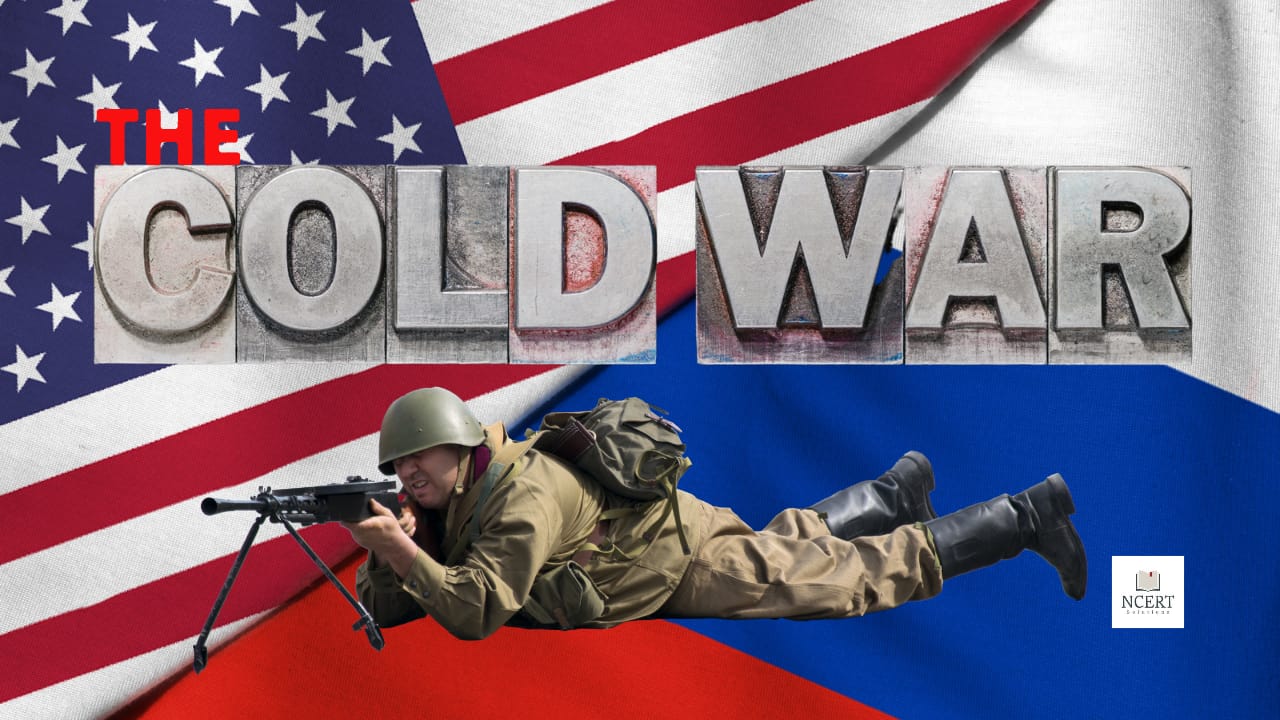The term “Cold War” refers to the tense and hostile political relations between the United States and the Soviet Union that developed after World War II. Unlike traditional wars, the Cold War was characterized by strategic competition, espionage, propaganda, and a race for nuclear and technological supremacy, rather than direct military conflict.
What is the Cold War?
The Cold War was a period of geopolitical tension between the United States and the Soviet Union, lasting from 1945 until the dissolution of the Soviet Union in 1991. This “war” was fought not with weapons on a battlefield, but through diplomacy, economic measures, and the influence of ideologies. It was a conflict of ideas, with the Western bloc led by the United States promoting capitalism and democracy, while the Eastern bloc led by the Soviet Union advocated for communism and a planned economy.
Origins of the Cold War
The Cold War began in the aftermath of World War II when the United States used atomic weapons against Japan, signaling a new era of military power. This event, coupled with the ideological differences between the U.S. and the Soviet Union, set the stage for decades of tension. Key factors that contributed to the Cold War included:
- Ideological Differences: The U.S. and Soviet Union had fundamentally opposing views on government, economy, and society, leading to deep mistrust.
- Nuclear Arms Race: The development and stockpiling of nuclear weapons by both nations heightened tensions.
- Political and Military Alliances: NATO and the Warsaw Pact were formed, dividing the world into competing camps.
Impact
The Cold War shaped much of the global political landscape in the second half of the 20th century. It led to the formation of military alliances, proxy wars in various regions, and significant advances in space exploration and military technology. It also influenced domestic policies, especially in the U.S. and Soviet Union, where fears of the “other side” dominated political discourse.
One of the most significant outcomes of the Cold War was the division of Germany, which was physically symbolized by the Berlin Wall. The eventual fall of the Berlin Wall in 1989 marked a significant moment in the decline of the Cold War.
India’s Role
India maintained a policy of non-alignment, refusing to join either the U.S.-led NATO or the Soviet-led Warsaw Pact. This policy allowed India to maintain diplomatic relations with both superpowers and to focus on its own national interests without being drawn into the rivalry.
The End of the Cold War
The Cold War came to an end with the dissolution of the Soviet Union in 1991. This marked the collapse of communist power in Eastern Europe and the emergence of the United States as the world’s sole superpower. The policies of Soviet leader Mikhail Gorbachev, including glasnost (openness) and perestroika (restructuring), played a crucial role in easing tensions and bringing about the end of this prolonged geopolitical conflict.
Conclusion
The Cold War was a unique period of global tension and competition that shaped the modern world in profound ways. While it never escalated into full-scale war, its influence is still felt in international relations today. Understanding the Cold War is crucial for anyone studying modern history or international politics.
FAQs
- Which countries were involved in the Cold War?
The primary countries involved were the United States and the Soviet Union, but it also affected many other nations globally. - Why was it called the Cold War?
Because it involved no direct military confrontation between the two superpowers. - Who won the Cold War?
The United States is generally considered the winner, as the Soviet Union dissolved and communism lost influence globally. - Who first used the term Cold War?
The term was first used by George Orwell in 1945. - How long did this War last?
It lasted from 1945 to 1991, ending with the collapse of the Soviet Union.




